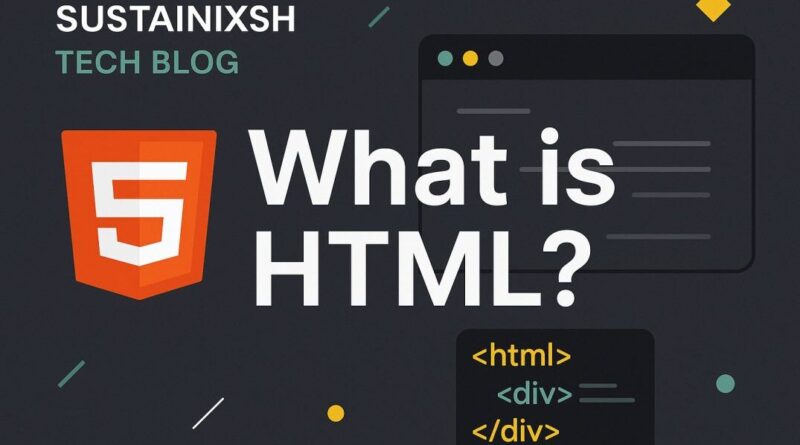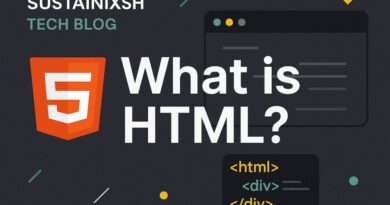HTML – The Building Blocks – The Unsung Hero of the Web
HTML: The Unsung Hero of the Web – Your Guide to Its Core Building Blocks
Ever wonder how websites are made? How those images, text, and videos you see online are so perfectly arranged? The answer, my friend, lies in a fundamental language called HTML. It’s the silent architect behind every webpage you visit.
But what exactly is HTML? Let’s break it down in simple terms.
HTML: HyperText Markup Language – Your Digital Blueprint
At its heart, HTML stands for HyperText Markup Language. Don’t let the fancy name intimidate you! Let’s unpack each part:
- HyperText: This refers to the way web pages are linked together. Think of it as the ability to jump from one piece of information (like a word or an image) to another with a single click. Remember those blue, underlined words on a webpage? That’s hypertext in action, connecting you to a whole new world of content.
- Markup: This is where HTML really shines as a “language.” Instead of being a programming language that tells a computer what to do (like calculate numbers), HTML is a markup language. It uses special codes, called tags, to tell your web browser how to display content. It’s like giving instructions to a painter: “Put the heading here,” “Make this a paragraph,” “Insert an image here.”
- Language: Well, it’s a set of rules and syntax that web browsers understand. Just like you use English or Hindi to communicate with people, web browsers use HTML to understand how to present information to you.
So, What Does HTML Do?
Think of HTML as the skeleton or the blueprint of a webpage. It provides the structure and content. When you type a website address into your browser, it’s essentially requesting an HTML file. Your browser then reads this HTML file and uses the instructions (those “tags”) to render the page you see.
Without HTML, the internet as we know it wouldn’t exist. It’s the foundational layer upon which everything else is built.
Why is HTML Important for You (Even if You’re Not a Coder)?
Even if you never plan to write a single line of code, understanding the basics of HTML gives you a powerful insight into how the web works. It helps you appreciate the effort behind every website and can even empower you to make small tweaks or understand issues if you’re managing a website.
For aspiring web developers, designers, or anyone interested in digital marketing, mastering HTML is the absolute first step. It’s the bedrock for learning CSS (for styling) and JavaScript (for interactivity).
Ready to Dive Deeper?
This was just a glimpse into the core of HTML. It’s a vast and fascinating topic, and the best way to learn is by doing! There are tons of free resources online to help you start your HTML journey.



